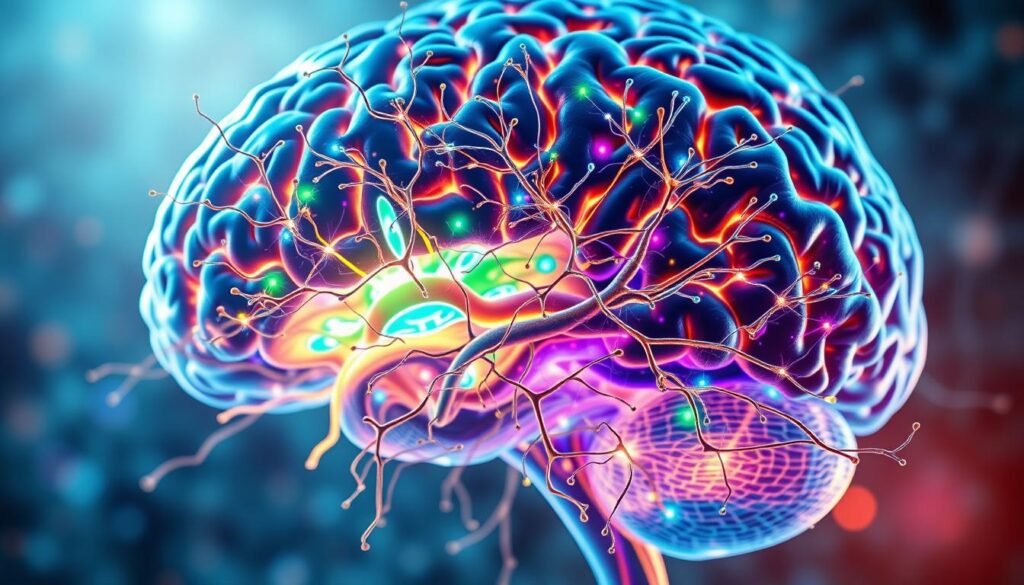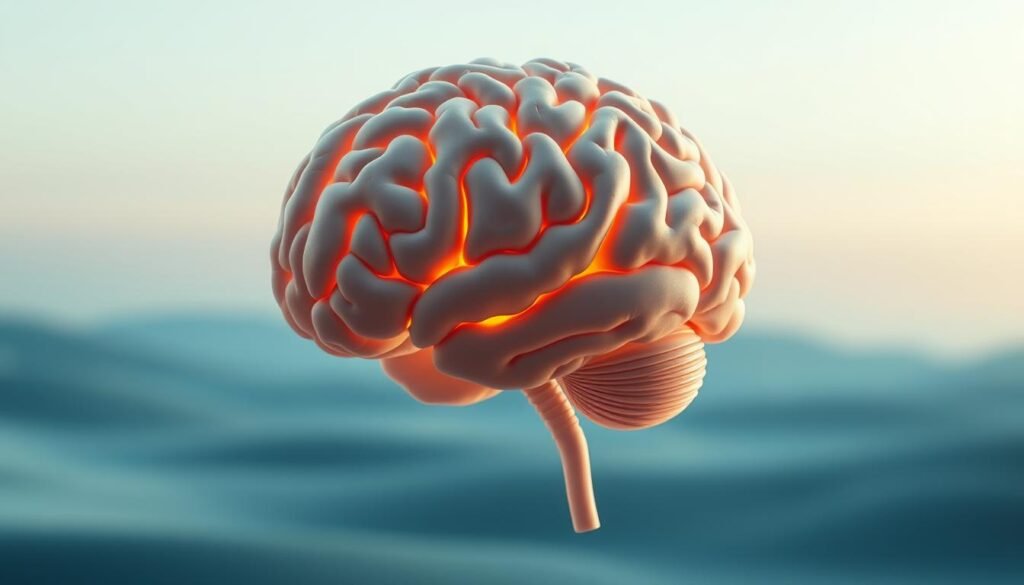Address
AVSSO 2242 SE 171st AVE Portland Oregon USA 97233
Work Hours
Monday to Friday: 7AM - 7PM
Weekend: 10AM - 5PM
Address
AVSSO 2242 SE 171st AVE Portland Oregon USA 97233
Work Hours
Monday to Friday: 7AM - 7PM
Weekend: 10AM - 5PM

Boost your brainpower with neurobics, a series of simple exercises designed to sharpen your mind and improve cognitive fitness! By incorporating these daily exercises into your routine, you can enhance your focus, rebuild your brain’s internal navigation system, and unlock your full potential! 🔓
Neurobics provides mental exercise that does more than just improve memory. It offers a wide range of benefits that can improve your overall brain health and cognitive abilities. By engaging in these brain exercises, you can take control of your cognitive fitness and start seeing improvements in your daily life.
In today’s fast-paced world, mental fitness is more crucial than ever for maintaining cognitive function and overall brain health! As you navigate the demands of modern life, it’s essential to understand the significance of mental agility and brain training. Research has shown that people who engage in healthy behaviors such as exercise and proper nutrition are less susceptible to cognitive declines associated with aging.

Brain health is vital across all stages of life. Neuroplasticity, the brain’s ability to adapt and change, allows for continuous improvement and adaptation. Here are key reasons why brain health matters:
The science behind cognitive enhancement is rapidly evolving, with new research emerging on brain training and cognitive improvement techniques. Studies have shown that targeted cognitive training can lead to significant improvements in cognitive function. Some key areas of research include:
By staying informed about the latest developments in cognitive enhancement, you can make informed decisions about your brain health.
Get ready to unlock the full potential of your brain with NEUROBICS, a revolutionary approach to mental fitness! NEUROBICS is all about stimulating your brain with novel, engaging, and challenging activities to promote neuroplasticity and boost cognitive vitality.
The term “neurobic exercise” was coined by Dr. Lawrence Katz, a renowned neuroscientist. According to Dr. Katz, neurobic exercises are mental activities that stimulate the brain, promoting neuroplasticity and keeping your brain young and healthy. “Neurobics is about doing everyday things in new and unexpected ways to challenge your brain.” For example, you can try brushing your teeth with your non-dominant hand or taking a different route to work.
Unlike traditional brain training methods that focus on repetitive exercises, NEUROBICS offers a more holistic approach. It’s not just about memorizing numbers or solving puzzles; it’s about engaging your brain in new and exciting ways. Here’s a comparison:
| Aspect | Traditional Brain Training | NEUROBICS |
|---|---|---|
| Approach | Repetitive exercises | Novel and engaging activities |
| Focus | Specific cognitive skills | Overall brain health and neuroplasticity |
As you can see, NEUROBICS provides a more comprehensive and engaging way to improve your brain health. By incorporating NEUROBICS into your daily routine, you can experience significant cognitive benefits and enhance your overall well-being.

The human brain’s ability to reorganize itself is a fascinating phenomenon known as neuroplasticity. This concept challenges the long-held idea that the brain is a fixed, unchangeable entity after a certain age. In reality, your brain remains highly adaptable throughout your life!
When you engage in new experiences or learn new skills, your brain creates new neural pathways. This process is fundamental to neuroplasticity. For instance, London taxi drivers, who must memorize complex maps, have been shown to develop a larger hippocampus, a region of the brain involved in spatial memory.

Research has demonstrated that brain training can lead to significant improvements in cognitive function. Studies have shown that targeted cognitive training programs can enhance memory, attention, and processing speed. The table below summarizes some key findings:
| Study | Training Focus | Outcome |
|---|---|---|
| Study 1 | Memory | Improved memory recall |
| Study 2 | Attention | Enhanced focus |
| Study 3 | Processing Speed | Faster reaction times |
By understanding and leveraging neuroplasticity, you can take control of your brain’s health and enhance your cognitive abilities.
Unlock the full potential of your brain with the 7 proven benefits of regular neurobic exercise! By incorporating neurobic exercises into your daily routine, you can experience significant improvements in cognitive fitness, mental agility, and overall brain health.
Regular neurobic exercise has been shown to enhance various aspects of cognitive function. Let’s dive into the specifics of these benefits.
Neurobic exercises are designed to challenge your brain and improve cognitive functions such as memory, focus, and processing speed. These exercises help create new neural pathways, enhancing your brain’s ability to adapt and process information efficiently.
In addition to cognitive benefits, neurobic exercises also promote emotional well-being and long-term brain health. Regular practice can lead to reduced stress levels, improved mood, and a lower risk of cognitive decline.
| Benefits | Description |
|---|---|
| Emotional Well-being | Reduced stress, improved mood |
| Long-term Brain Health | Lower risk of cognitive decline |
| Cognitive Reserve | Enhanced brain resilience |
By incorporating neurobic exercises into your daily routine, you can experience these benefits firsthand and take a proactive approach to maintaining your brain health.

Discover the Switch Hands Challenge, a fun and effective brain exercise that can help you develop new neural pathways and enhance your cognitive abilities! This exercise involves performing daily tasks with your non-dominant hand, which can lead to a significant cognitive boost.
To get started with the Switch Hands Challenge, follow these simple steps:
You don’t need any special equipment to start the Switch Hands Challenge. Just your willingness to try something new and your non-dominant hand!
A study conducted at Stanford University found that participants who performed tasks with their non-dominant hand showed a 23% increase in cognitive function compared to those who didn’t. This is because using your non-dominant hand creates new neural pathways in your brain, enhancing your overall cognitive fitness.

By engaging multiple senses at once, Multisensory Overload Training offers a powerful way to stimulate your brain and improve cognitive abilities! This innovative exercise combines different sensory experiences to challenge your brain and promote neuroplasticity.
To get the most out of Multisensory Overload Training, you need to create effective sensory combinations. This involves pairing different senses in unique ways to stimulate your brain. For example, you can combine visual and auditory stimuli or mix tactile sensations with olfactory experiences.
Using contrasting stimuli in your Multisensory Overload Training can help grow gray matter in your brain! For instance, combining a calming visual stimulus with an intense auditory one can create a powerful contrast that challenges your brain and promotes neuroplasticity. Examples include:
By incorporating these techniques into your brain training routine, you’ll be able to enhance your cognitive function and achieve a sharper, more agile mind!
Discover how immersing yourself in a foreign language can be a game-changer for your brain’s health and agility! The Foreign Language Immersion Technique is a powerful Neurobic exercise that not only challenges your linguistic skills but also enhances your overall cognitive fitness.
By engaging with a new language, you’re creating new neural pathways in your brain, improving your ability to process information and think creatively. This technique is part of the broader spectrum of brain exercises designed to keep your mind sharp and agile.
To effectively incorporate the Foreign Language Immersion Technique into your daily routine, start by:
Consistency is key. Even 15-20 minutes of language practice a day can significantly impact your cognitive abilities.
Some top resources for language learning include Rosetta Stone, Babbel, and italki. These platforms offer structured lessons and interactive exercises to help you stay on track.
Research from the NIH has shown that bilingual individuals have a delayed onset of dementia compared to monolingual individuals. As Dr. Lisa Gamaldo, a neurologist at Johns Hopkins, notes, “The brain is a muscle that needs to be exercised, and learning a new language is one of the most effective ways to challenge it.”
“Bilingualism requires the brain to work harder, and this ‘work’ may build up a kind of cognitive reserve that protects against the manifestations of dementia.”
This technique not only enhances your cognitive reserve but also enriches your cultural understanding and opens up new avenues for personal and professional growth.
Route Roulette is a fun and easy way to improve your brain’s spatial awareness and break its ‘autopilot’ mode. By taking different routes daily, you challenge your brain to adapt and navigate through new environments, enhancing your cognitive function and mental agility.
When you follow the same route every day, your brain goes into “autopilot” mode, reducing the need for active spatial awareness. Route Roulette combats this by forcing your brain to engage with new routes, thereby improving your ability to navigate and remember different paths.
While practicing Route Roulette, ensure you’re aware of your surroundings to stay safe. Avoid distractions like using your phone while walking or driving, and follow local traffic rules.
For urban settings, try exploring different neighborhoods or using alternative public transportation routes. In suburban areas, consider varying your driving routes or walking paths. Here are some additional tips:
| Benefits | Urban Setting | Suburban Setting |
|---|---|---|
| Improved Spatial Awareness | Explore different neighborhoods | Vary your driving routes |
| Enhanced Cognitive Function | Use alternative public transportation | Try new walking paths |
By incorporating Route Roulette into your daily routine, you’ll not only improve your spatial awareness but also enhance your overall brain training and cognitive abilities. So, take the first step today and start exploring new routes!
Get ready to challenge your senses with the Blind Smell Test Challenge! This exercise is designed to boost your cognitive fitness by leveraging the powerful connection between your sense of smell and your brain.
The Blind Smell Test Challenge involves identifying different scents without visual cues, which can significantly improve your brain health. By training your olfactory system, you’re not just enhancing your sense of smell; you’re also strengthening your brain’s ability to process and remember sensory information.
To start the Blind Smell Test Challenge, you’ll need to set up your olfactory training station. Begin by gathering a variety of distinct scents, such as essential oils or aromatic spices. Ensure that the scents are strong enough to be identified easily but not so overpowering that they cause discomfort.
Begin with familiar scents like lavender, vanilla, and cinnamon. These aromas are not only pleasant but also distinct enough to help you develop your olfactory recognition skills. You can gradually introduce more complex or subtle scents as you become more confident in your ability to identify them.
The sense of smell is closely linked to the brain’s limbic system, which is responsible for emotion, memory, and behavior. By enhancing your sense of smell through exercises like the Blind Smell Test Challenge, you’re directly supporting your brain health. As neuroscientist Dr. Alan Hirsch once said,
“The sense of smell is a powerful trigger for memory and emotion.”
By training your sense of smell, you’re not just improving your ability to identify scents; you’re also boosting your overall cognitive fitness.
Get ready to challenge your brain with Exercise 6: Mirror Drawing for Enhanced Coordination! 🎨 This simple yet effective exercise can significantly improve your motor skill development and cognitive function. By drawing while watching your reflection, you’ll be engaging your brain in a unique way that enhances coordination and neuroplasticity.
Mirror drawing involves creating a drawing while looking at your reflection in a mirror, rather than directly at the paper. This technique challenges your brain to coordinate your hand movements with the visual feedback you’re receiving from the mirror. It’s an engaging way to improve your fine motor skills, hand-eye coordination, and cognitive processing.
To keep challenging your brain, you can progressively increase the difficulty level of mirror drawing. Here are some ways to do it:
Keep track of your progress by regularly practicing mirror drawing and noting any improvements in your coordination and fine motor skills. You can also take photos of your drawings to visualize your progress over time.
Research has shown that mirror drawing can accelerate motor skill development by up to 2 times! 🚀 This is because the exercise challenges your brain to create new neural pathways, enhancing neuroplasticity. By incorporating mirror drawing into your regular brain training routine, you can experience significant improvements in your coordination and overall cognitive fitness.
Get ready to reboot your brain with the 5-Minute Brain Reset Protocol! This simple yet powerful exercise can help you reduce stress, improve cognitive function, and boost mental agility. By dedicating just 5 minutes a day to this protocol, you can experience significant benefits in your mental clarity and focus.
The key to the 5-Minute Brain Reset Protocol is proper breathing technique. To start, find a comfortable seated position with your back straight and feet planted firmly on the ground. Close your eyes and take slow, deep breaths through your nose, filling your lungs completely. Hold the breath for a second, and then exhale slowly through your mouth. Repeat this process, focusing on the sensation of the breath moving in and out of your body. Proper breathing can calm your mind and enhance cognitive function.
You can incorporate the 5-Minute Brain Reset Protocol into your daily routine at any time. Try taking a few minutes during your morning or afternoon break, or right before a challenging task. Even a short pause can make a big difference in your mental clarity and productivity.
Research has shown that mindfulness practices, such as the 5-Minute Brain Reset Protocol, can positively impact cognitive function. By reducing stress and improving focus, mindfulness can help you perform better in various tasks and enhance overall brain health. Studies have demonstrated that regular mindfulness practice can lead to increased gray matter in areas of the brain associated with attention and emotion regulation.
Now that you’ve learned about the various NEUROBICS exercises, it’s time to create a personalized routine that suits your lifestyle and goals! To get started, you’ll need to select a mix of exercises that challenge your brain and keep you engaged. Choose 2-3 exercises to begin with, and feel free to adjust your routine as you progress.
Here’s a sample 7-day schedule to get you started:
| Day | Exercise | Duration |
|---|---|---|
| Monday | Switch Hands Challenge | 5 minutes |
| Tuesday | Multisensory Overload Training | 10 minutes |
| Wednesday | Foreign Language Immersion | 15 minutes |
| Thursday | Route Roulette | 10 minutes |
| Friday | Blind Smell Test | 5 minutes |
| Saturday | Mirror Drawing | 10 minutes |
| Sunday | 5-Minute Brain Reset Protocol | 5 minutes |
As you start your NEUROBICS journey, you may encounter resistance or struggle to stay on track. Don’t worry – it’s normal! To overcome these challenges, try to:
To measure the effectiveness of your NEUROBICS routine, try keeping a brain training journal or using a mobile app to track your progress. Monitor your improvements in memory, focus, and processing speed, and adjust your routine accordingly. As you continue to challenge your brain, you’ll be amazed at the cognitive improvements you’ll experience!
“The mind is not a vessel to be filled, but a fire to be kindled.” – Plutarch
You’ve taken the first step towards a sharper mind and improved cognitive function! By incorporating neurobic exercises into your daily routine, you’re investing in your brain health and mental agility. Regular neurobic exercise can lead to significant benefits, including enhanced cognitive function, a sharper mind, and overall brain health.
As you continue on this journey, remember to mix and match the exercises to keep your brain engaged. Try new combinations, challenge yourself, and have fun! Your brain is capable of remarkable change, and with consistent practice, you’ll be amazed at the improvements in your mental agility and cognitive abilities.
Stay committed, and you’ll be on your way to a healthier, more resilient brain. Keep pushing your limits, and you’ll discover a sharper, more agile you! 🔥💡

Neuro Energizer: The 7-Second Audio Hack for Instant Mental Clarity